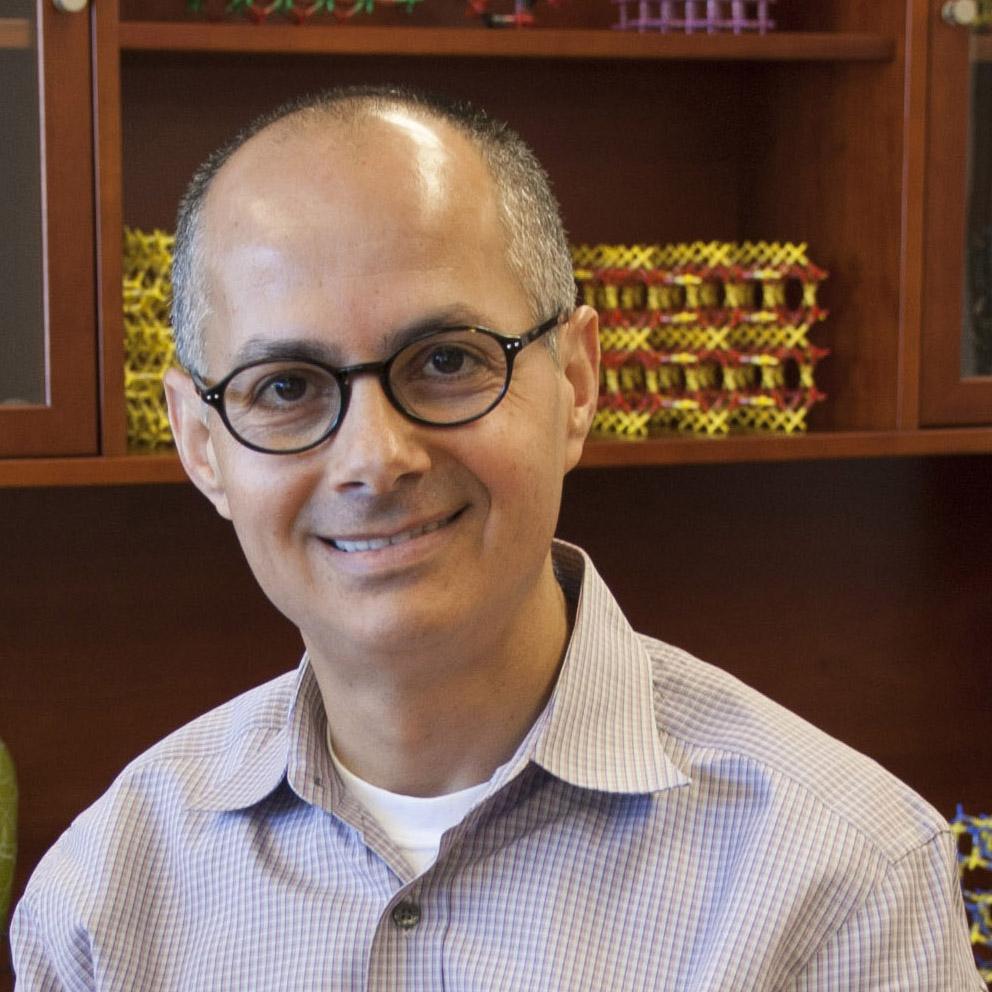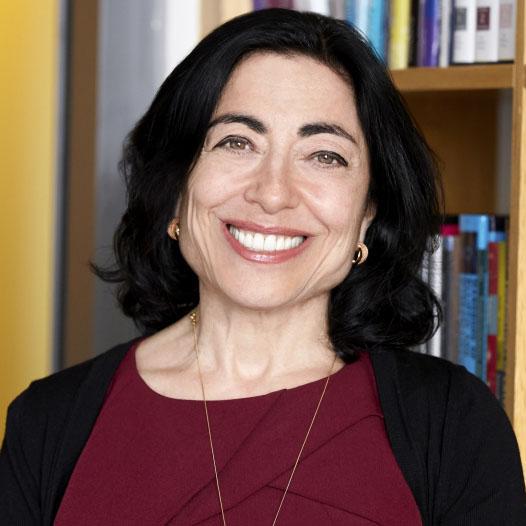New Institute Brings Together Chemistry and Machine Learning to Tackle Climate Change
Imagine a technology that could remove planet-warming emissions from smokestacks, turn moisture in the air into drinking water and transform carbon dioxide into clean energy.
A new UC Berkeley institute will bring together top machine learning and chemistry researchers to make this vision a reality, and a Bay Area foundation is providing a substantial gift to launch and enable this work at UC Berkeley over the next five years.

The Bakar Institute of Digital Materials for the Planet (BIDMaP) aims to develop cost-efficient, easily deployable versions of two classes of ultra porous materials – known as metal-organic frameworks (MOFs) and covalent organic frameworks (COFs) – to help limit and address the impacts of climate change.
“Hydrogen, carbon dioxide and water are some of the smallest molecules in chemistry,” said Omar M. Yaghi, the Berkeley chemistry professor who invented MOFs and COFs and the scientific leader of the new institute. “If we can find a way to capture them efficiently, in large quantities, then we will unlock the answers to the greatest problems facing our planet.”
The institute’s work to help limit the planet’s warming and adapt to climate impacts is urgent. Climate change is making extreme weather more severe, leaving communities around the world in harm’s way. Just this month, California experienced an extended heat wave with record temperatures, the year’s largest wildfire and heavy rain and mudslides, all amidst a years-long drought.
BIDMaP is the latest cutting-edge research initiative developed as part of the Division of Computing, Data Science, and Society (CDSS). Like the Computational Precision Health program launched last year, it will capitalize on Berkeley’s first-rate faculty and new faculty hires to create a novel field and interdisciplinary solutions that help solve society's most intractable problems.
Saving us from the worst of climate change
A MOF is a crystalline structure that – through strong bonds between metals and organic linkers – contains a large surface area, folded and compacted into tiny spaces. Each of the more than 100,000 frameworks in existence can attract, filter, store or release specific molecules like carbon dioxide and water, operating in different environments and with high precision. COFs are yet another class of ultra porous crystals made entirely from strongly bonded organic molecules with no metals; their versatility offers another frontier in applications for electronics and sensors. MOFs and COFs are outcomes of reticular chemistry, a field started by Yaghi and now being practiced by scientists in more than 100 countries.
The structures can hold vast amounts of molecules in tiny spaces. A canister with a carbon dioxide-capturing MOF can hold 18 times more of the molecule than one without it. A single gram of a MOF has enough surface area to cover a football field. These crystalline structures can be incorporated into materials and machines that can increase access to clean energy and water and help limit the warming of the planet by removing greenhouse gases.
The institute will develop a new field of machine learning for experimental science, creating algorithms and designing platforms to optimize discovery, development and the deployment of technology. BIDMaP aims to help scientists find more correct answers faster and provide a roadmap for incorporating artificial intelligence (AI) into other fields like physics.

“This is what we need to accelerate discovery at a rate that will save us from the worst effects of climate change,” said Jennifer Chayes, associate provost for CDSS and dean of the School of Information at Berkeley. “BIDMAP will bring together the founder of an important new field in chemistry and the best artificial intelligence and machine learning group in the world to imagine and create a better future.”
Benefiting from excellence across campus
In addition to Yaghi and Chayes, the institute will benefit from the participation of top-of-their-field Berkeley experts. That includes Fernando Pérez, an associate professor in the Department of Statistics known for building scalable, open-source platforms, and Christian Borgs, Joseph Gonzalez and Jennifer Listgarten, faculty in the Department of Electrical Engineering and Computer Sciences and the world’s leading AI and machine learning group, the Berkeley Artificial Intelligence Research Lab.
Notable faculty in BIDMaP also include Berkeley vice chancellor of research Katherine Yelick; College of Chemistry’s Felix Fischer, Peidong Yang and Aditi Krishnapriyan; Department of Materials Science and Engineering’s Kristin Persson; and Goldman School of Public Policy’s Solomon Hsiang.
The institute will include four new interdisciplinary faculty members, graduate and post-graduate students, visiting scholars, software developers and an executive director. It will host programs, workshops and seminars on data science, machine learning and chemistry for students and faculty on campus and elsewhere, and serve as the global hub for research and education in this emerging field. BIDMaP also intends to incubate, scale and commercialize metal-organic framework technologies for widespread use in tackling climate change.
